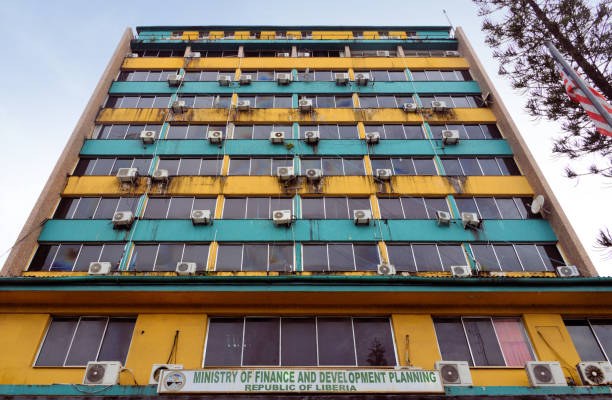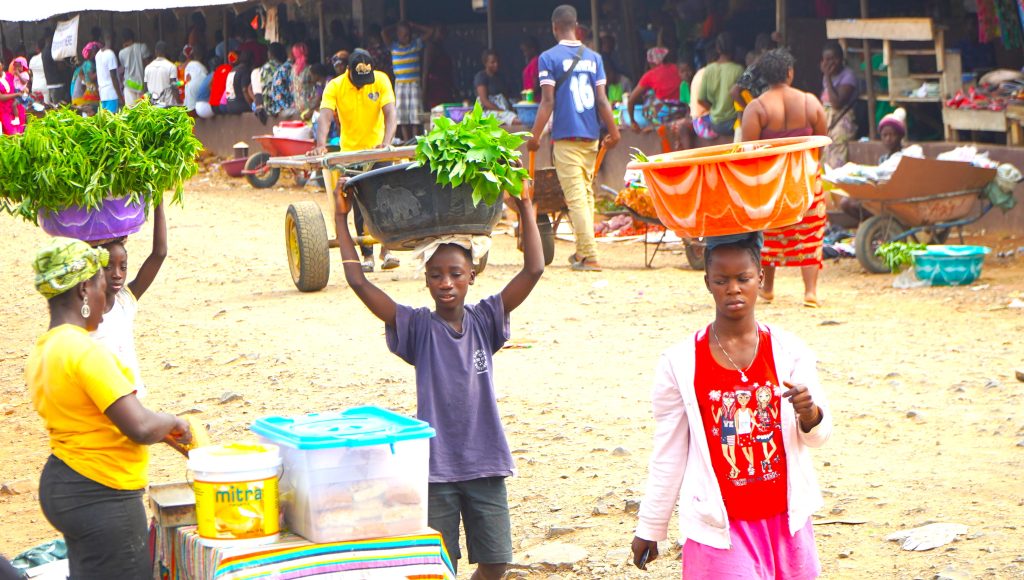Liberia’s Fiscal Woes Deepen: Government Struggles with Revenue Shortfalls and Budgetary Challenges in Quarter Two FY2024

Monrovia, Liberia – The Government of Liberia’s recent financial report for the second quarter of FY2024 paints a troubling picture of the nation’s fiscal health. Despite concerted efforts to enhance revenue collection and manage public finances, the government fell short in key areas, revealing deeper systemic issues that could threaten the country’s economic stability and its ability to deliver essential public services.
Revenue Collection: A Disappointing Performance
The report from the Ministry of Finance and Development Planning highlights that while total tax receipts slightly exceeded projections, non-tax revenue collections fell significantly short of expectations. Total tax revenue for Q2 FY2024 was $151.05 million, surpassing the projected $139.30 million by 8%. However, this marginal success is overshadowed by the underperformance in specific tax categories and non-tax revenues.

Taxes on income and profits, the largest component of the tax revenue, contributed $75.59 million, exceeding projections by 16%. Yet, other critical areas did not perform as well. Property taxes, a vital revenue stream, collected only $1.78 million, underperforming by 16% compared to projections. Taxes on goods and services also missed the mark, with a collection of $19.58 million against a projected $21.20 million—a shortfall of 8%.
Non-tax revenue was even more concerning. The government collected $27.06 million, which was $5.96 million or 22% below the projected $33.02 million. This underperformance is particularly alarming given the government’s reliance on non-tax revenues to supplement its budget and fund critical infrastructure projects.
Sectoral Disparities and Budgetary Imbalances
The disparities in sectoral spending further exacerbate the fiscal imbalance. Despite the revenue shortfalls, the government’s expenditure exceeded the budgeted amounts in several key sectors. For example, the report shows that compensation for employees amounted to $81.66 million, which was $4.01 million above the allotment. This overspending highlights the government’s ongoing struggle to control payroll costs, a significant component of its recurrent expenditure.
Furthermore, the report indicates that capital expenditure on non-financial assets was $10.72 million, slightly lower than the $12.49 million spent in Q2 FY2023. However, this decrease in capital spending raises concerns about the government’s ability to maintain and expand critical infrastructure, which is essential for long-term economic growth and development.
Implications for National Development and Public Services
The underperformance in revenue collection and the imbalance in budgetary allocations have serious implications for Liberia’s national development agenda. The shortfall in non-tax revenue, particularly from sources like royalties and rents, may constrain the government’s ability to fund its Public Sector Investment Plan (PSIP), which is crucial for improving infrastructure, healthcare, and education across the country.
Moreover, the overspending on employee compensation, coupled with the underinvestment in capital projects, suggests a misalignment in budget priorities. While ensuring that public servants are adequately compensated is important, the disproportionate allocation of funds towards recurrent expenses at the expense of capital investment could hinder the country’s long-term development.
Calls for Reform and Greater Transparency
Given these fiscal challenges, there is a growing call for the government to implement more robust revenue collection mechanisms and to exercise greater discipline in public spending. Critics argue that the current fiscal management practices are unsustainable and could lead to a deeper economic crisis if not addressed urgently.
Transparency and accountability in the use of public funds are also paramount. The discrepancies between projected and actual revenues, coupled with the overspending in certain areas, highlight the need for better financial oversight and management. Civil society organizations and international partners are urging the government to conduct a thorough audit of its revenue collection and expenditure practices to identify inefficiencies and areas for improvement.
As Liberia navigates through these fiscal challenges, the government’s ability to manage its finances effectively will be crucial in determining the country’s economic trajectory. The recent report underscores the need for immediate reforms to stabilize the economy, improve revenue collection, and ensure that public funds are used efficiently to support national development. Without these reforms, Liberia risks further fiscal instability, which could undermine its efforts to achieve sustainable economic growth and improve the lives of its citizens.
Liberian-born Emmanuel Orlind Cooper is an accomplished multimedia journalist with extensive experience covering news and stories on a variety of media platforms. Orlind's work frequently demonstrates his profound grasp of the region and its complexity, given his Liberian heritage.
Now residing in Woodbridge, Virginia, he keeps connecting with readers across continents with his perceptive journalism and sharing his viewpoint. He is well-respected in the sector because of his unwavering commitment to honesty and morality, which sets him apart in the field.
Orlind's work is more than simply his job; it's a dedication to giving voice to the voiceless, illuminating unsung tales, and advancing the worldwide conversation on important concerns. His goal as a journalist is to use the media's power to change the world, not just to disseminate information. He is a key player in modern journalism because of the inspiration, education, and engagement that his work consistently provides.

